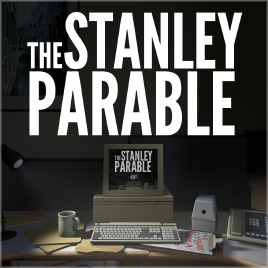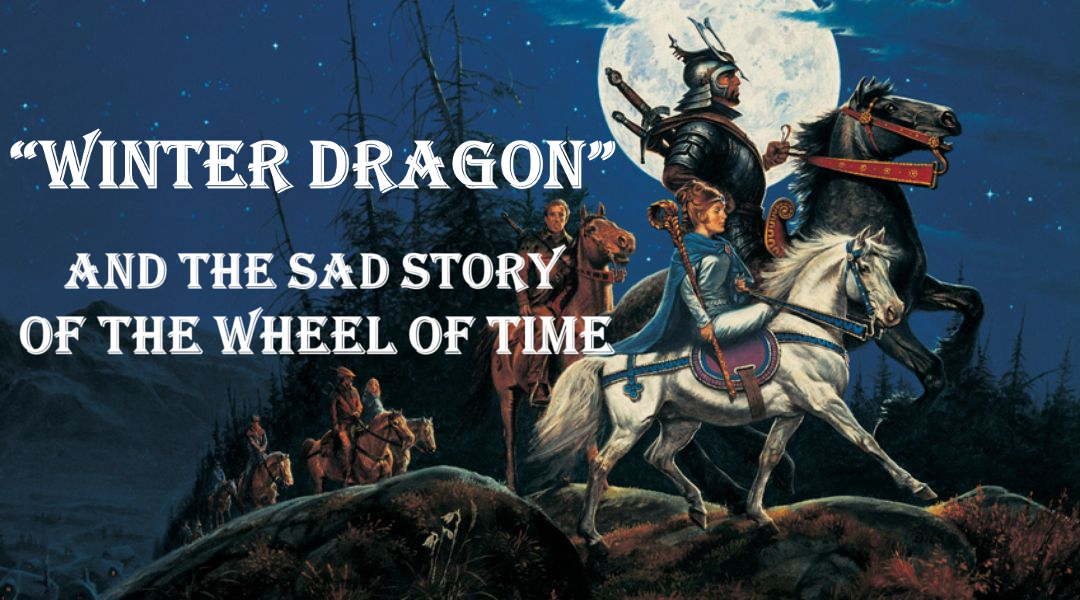
The Stanley Parable asks…is every game actually coop?

The Stanley Parable recently appeared on Steam and is currently discounted 20%. If you have a little downtime and are looking for an adventure that is somewhat…unusual, this may be the game for you. Moreover, if you’re interested in the nature of games in more of a philosophical context, then this definitely is the game for you.
Discussing the plot of The Stanley Parable is difficult to do without giving much away. You are Stanley, you work in an office, you stand up and start walking around your office one day. A disembodied voice provides the narration of your movements, feedback on your performance, and – after a time – reflections on the sense of control and choice players have in games. You’re given instruction in the game but you can rebel against it and do what you want. When told to go upstairs, you can go down. When told to go through one door, you can go through the other. Heck you can just stay at your desk and refuse to engage at all.
But, the game asks, why do you want to? Presumably you’re playing the game because you want to have the gaming experience as designed by the game’s designers. When playing, why do we rebel against what the games wants us to do?
Here’s the interesting paradox. Games have to provide choices to the player (games in which you have no options at all are called movies). The narrator, representing the game designer more or less, wants you to have choices but also wants you to follow a story through a particular sequence of events. How can a game designer provide choices to the player and also guarantee a good story? Likewise, the gamer wants to explore the game environment, make decisions with weight and have a unique experience all of their own. However, the gamer also wants to experience a good story. Essentially, the gamer wants to feel free to choose the decision that will lead to the best game possible.
To me, this suggests that the gaming experience is ultimately a cooperative one between the game player and game designer. The gamer is playing along with the story and experiencing it within the limits that the designer provides. The designer is leading the player down a path and providing the illusion of choice and an interesting story for the player to experience. Described this way, it reminds me of role-playing games like Dungeons and Dragons which, in order to work, require the gamers to “play along” within the confines of the story (for an example of what can happen when players don’t play along, please see this episode of community).
This is an extremely interesting dilemma as some recent games have been criticized for failing to provide any choices to the player (or limiting the consequences of the choices). If the answer is in the game, though, I have not found it yet. The variety of in-game experiences are wide; gamers are still discovering them currently. I escaped from the building, died, got caught in a time loop, met another narrator, visited a museum dedicated to the game, and detonated a bomb.
At points, the game also encouraged me to simply stop playing and return to the real world where I have genuine freedom and the power to make real choices (“The only winning move is not to play” and all that). This reminded me of that scene in Spec Ops: The Line where you are forced to do something horrible in order to advance the story. The writer of the game, Walt Williams, has suggested that one of the games’ endings is for the player to quit and thus avoid taking these terrible actions. I appreciate the game’s breaking the fourth wall, but just because I don’t have total freedom in a game doesn’t mean the game is not worth playing. Games are interactive storytelling; I get to control the character but the story is written for me. However, every time I play, I will have a different experience. This game, especially, is one in which most everyone will have an experience unique to them. Maybe that’s the point, maybe you don’t need total freedom to have a unique experience.
Profundity aside, here’s why you should play the game: it’s hilarious. Other games have tried to poke fun at the cliches of playing games but it is very difficult to think of a funnier one (and certainly there are few as potentially profound). The narrator’s frustration and aggravation with your performance when you rebel against his direction or his confusion and bewilderment when he looses the thread of the story himself are hysterical.
For what it’s worth, I complete agree with the Spec Ops writer Walt Williams calling for less violence in video games because violence in video games is just not creative anymore. This game represents a great example of an interesting, fun, and largely non-violent game. This game, like the recent Gone Home, are great experiments in what is possible within the confines of the first-person shooter-style game play even when you aren’t given a gun.
-
coopdojo


